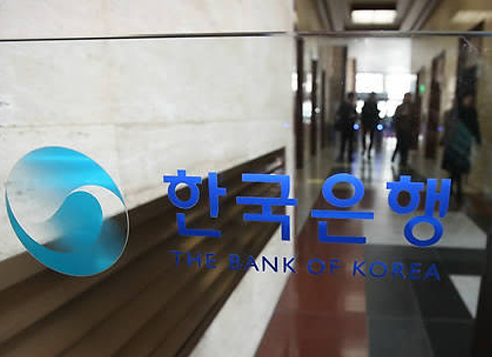South Korea's central bank said Thursday that it will maintain an expansionary monetary policy next year, but it will keep close tabs on economic conditions in order to tailor its policies accordingly.
"The domestic economy is expected to pull off stable growth next year, but the central bank will stay expansionary on low inflationary pressure," said the Bank of Korea in a report on its annual monetary strategy for 2018. "While closely looking into growth and consumer prices, the BOK will see whether it is necessary to tune up our monetary policy plans, which have kept pace with low growth and low inflation."

The BOK raised the key rate by a quarter percentage point to 1.5 percent last month in a bid to tackle the country's mounting household debt, which surpassed 1,400 trillion won ($1.3 trillion) in the third quarter.
It was the first rate-rise since June 2011 and signaled that the central bank is set to end its monetary easing.
The central bank also forecast growth in the 3 percent range for Asia's fourth-biggest economy in 2018.
The BOK said a steady rise in exports and a moderate improvement in private consumption will lend support to the upside mode as the global economy experiences an upturn, despite the slowing expansion of construction and facility investment.
Monetary normalization of major economies and the spread of trade protectionism will weigh heavily on the economy, along with geopolitical risks surrounding North Korea.
It said consumer prices will likely increase and get closer to the BOK's mid-term inflation target of 2 percent next year on an upturn in the South Korean economy. South Korea's consumer price index rose 1 percent for 2016 and 0.7 percent for 2015.
The BOK added that uncertainties like global oil prices and foreign exchange rates will have a negative impact on the future inflation path. (Yonhap)












![[Today’s K-pop] BTS pop-up event to come to Seoul](http://res.heraldm.com/phpwas/restmb_idxmake.php?idx=644&simg=/content/image/2024/04/17/20240417050734_0.jpg&u=)





![[KH Explains] Hyundai's full hybrid edge to pay off amid slow transition to pure EVs](http://res.heraldm.com/phpwas/restmb_idxmake.php?idx=652&simg=/content/image/2024/04/18/20240418050645_0.jpg&u=20240418181020)

![[Today’s K-pop] Zico drops snippet of collaboration with Jennie](http://res.heraldm.com/phpwas/restmb_idxmake.php?idx=642&simg=/content/image/2024/04/18/20240418050702_0.jpg&u=)